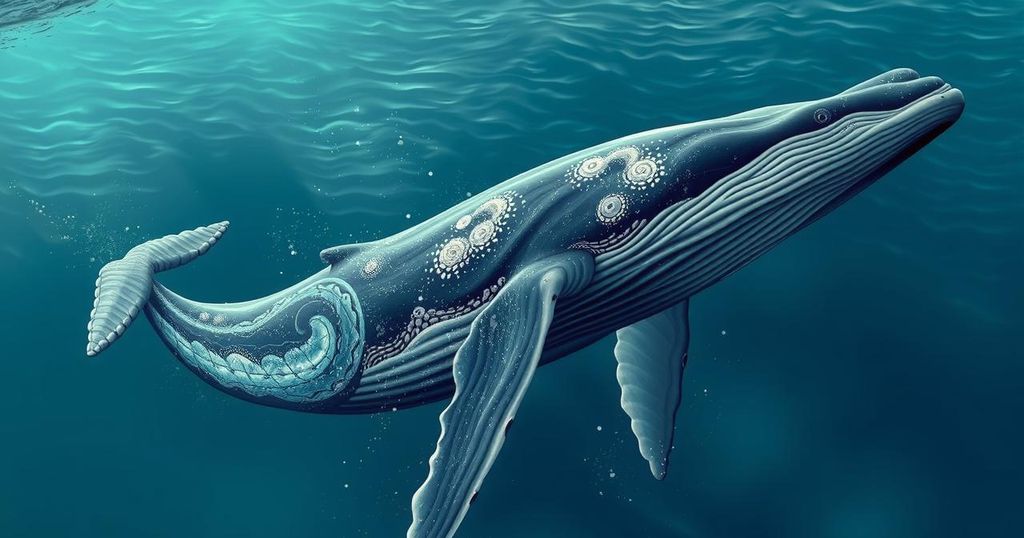A humpback whale has set a record by migrating over 13,000 kilometers from Colombia to Tanzania, raising concerns over climate change and its impact on marine species. Identified in 2013, 2017, and 2022, this unusual journey highlights shifts in foraging behavior and breeding patterns, prompting further investigation into the influences of environmental change.
In a remarkable event, a humpback whale has embarked on one of the longest migrations on record, traveling from the Pacific coast of Colombia to the Indian Ocean near Zanzibar, Tanzania. Identified by Happywhale in 2013 and 2017 in Colombian breeding grounds, the whale was later spotted in 2022 off the Tanzanian coast, covering a distance exceeding 13,000 kilometers. This extensive journey raises questions about the influences of climate change and the search for mates on whale migration patterns.
The humpback whale’s journey showcases its ability to traverse vast oceans and adapt to changing environmental conditions. While humpback whales are known for their long migratory routes, typically moving from tropical breeding regions to cooler feeding areas, this particular whale’s journey is extraordinary, involving two separate breeding grounds. Researchers indicate that climate change may disrupt food availability, leading whales to explore longer routes.
Dr. Kalashnikova remarked on the uncertainties of the journey’s motivations, highlighting factors such as global climate changes, increasing environmental events, and evolutionary adaptations within the species. The whale’s distinct tail pattern captured in images allowed researchers to trace its migratory path, reflecting a significant contribution from citizen science efforts, particularly through the platform Happywhale, which utilizes artificial intelligence to match and map individual whale movements.
The data collated from numerous sightings demonstrates the potential impacts of climate change on marine life, emphasizing the interconnectedness of ecosystems and species behavior. This discovery is not only significant for understanding whale migration but also for broader environmental studies regarding the effects of changing climates on wildlife.
The humpback whale, a species renowned for its extensive migratory behavior, inhabits all oceans worldwide. Each year, these whales journey from warmer breeding grounds to colder feeding areas, making their travel among the longest any mammal embarks upon. Recent studies suggest that their migration patterns may be increasingly influenced by climate change, adding complexity to their traditional routes as food resources fluctuate, and populations recover thanks to conservation efforts. The ability to track individual whales through citizen science initiatives has enhanced our understanding of their movements and the challenges they face.
In summary, the astounding migration of a humpback whale from Colombia to Tanzania underscores the enigmatic nature of marine life and its adaptability in the face of changing environmental conditions. As researchers gain further insights into the long-distance travels of these creatures, the implications for conservation and climate change responses become ever clearer. This instance serves as a reminder of the need for continued research and action in safeguarding marine ecosystems.
Original Source: www.thecitizen.co.tz







